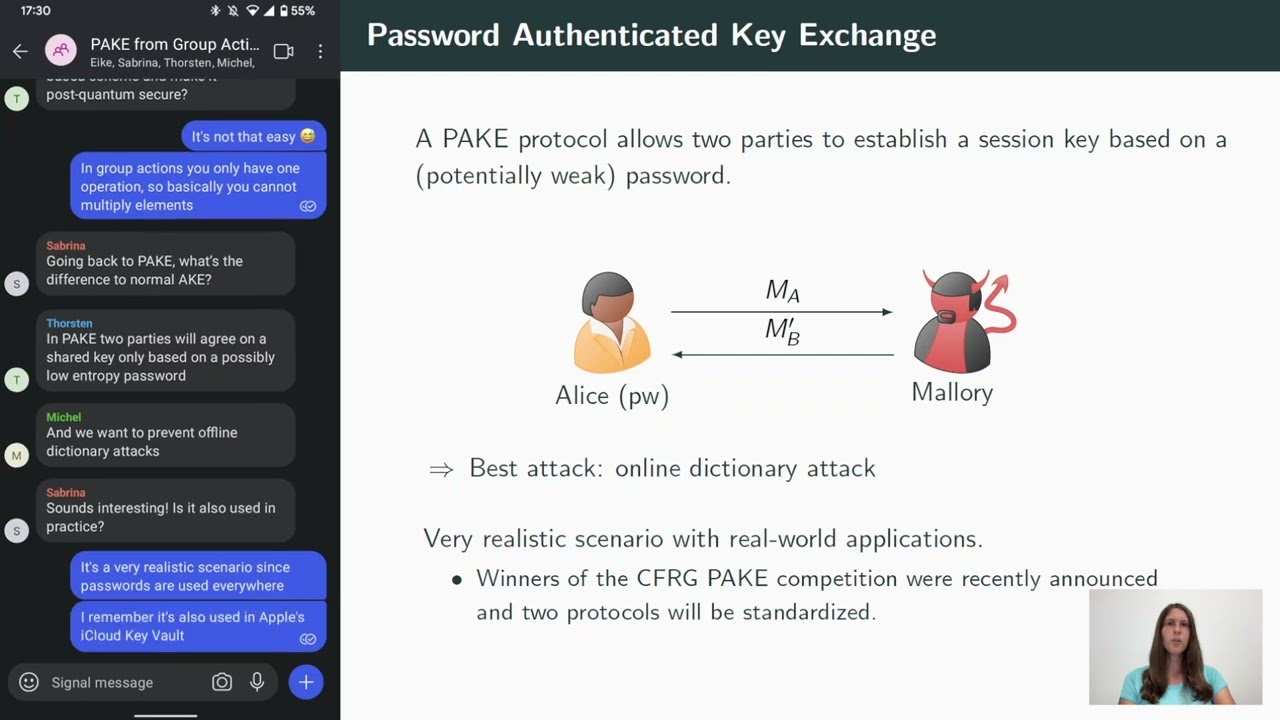Welcome to the resource topic for 2022/770
Title:
Password-Authenticated Key Exchange from Group Actions
Authors: Michel Abdalla, Thorsten Eisenhofer, Eike Kiltz, Sabrina Kunzweiler, and Doreen Riepel
Abstract:We present two provably secure password-authenticated key exchange (PAKE) protocols based on a commutative group action. To date the most important instantiation of isogeny-based group actions is given by CSIDH. To model the properties more accurately, we extend the framework of cryptographic group actions (Alamati et al., ASIACRYPT 2020) by the ability of computing the quadratic twist of an elliptic curve. This property is always present in the CSIDH setting and turns out to be crucial in the security analysis of our PAKE protocols. Despite the resemblance, the translation of Diffie-Hellman based PAKE protocols to group actions either does not work with known techniques or is insecure (“How not to create an isogeny-based PAKE”, Azarderakhsh et al., ACNS 2020). We overcome the difficulties mentioned in previous work by using a “bit-by-bit” approach, where each password bit is considered separately. Our first protocol \mathsf{X\text{-}GA\text{-}PAKE}_\ell can be executed in a single round. Both parties need to send two set elements for each password bit in order to prevent offline dictionary attacks. The second protocol \mathsf{Com\text{-}GA\text{-}PAKE}_\ell requires only one set element per password bit, but one party has to send a commitment on its message first. We also discuss different optimizations that can be used to reduce the computational cost. We provide comprehensive security proofs for our base protocols and deduce security for the optimized versions.
ePrint: https://eprint.iacr.org/2022/770
Talk: https://www.youtube.com/watch?v=NL9vaGhjJbk
Slides: https://iacr.org/submit/files/slides/2022/crypto/crypto2022/388/slides.pdf
See all topics related to this paper.
Feel free to post resources that are related to this paper below.
Example resources include: implementations, explanation materials, talks, slides, links to previous discussions on other websites.
For more information, see the rules for Resource Topics .
